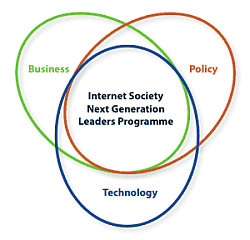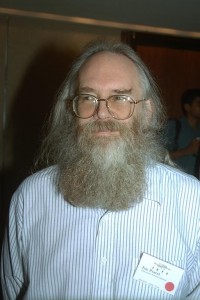 To my ISOC Colleagues,
To my ISOC Colleagues,
I am writing as I fly to Istanbul with much anticipation for a week of important work. I understand that more than 3000 people have registered for the IGF. This past year, as a diverse Internet community, we have given much thought and energy on how to best “govern” ourselves. In Istanbul, we will have an opportunity, with our colleagues from around the world, to, once again, demonstrate the power of collective collaboration and action. As we know, collaboration is essential to ensure the future of the Internet. If decisions related to the Internet and its future are not in the hands of the many, they will only be in the hands of the few. I will post some further thoughts this weekend on IGF before the panels, workshops, lunches and dinners begin.
I wanted, however, to take a few moments before we land to report back on my observations of the WEF event yesterday.
I applaud the leadership of the World Economic Forum for highlighting and recognizing the enormity of the effect of the Internet on the global economy and the benefits and challenges inherent in its adoption in much of the world. It is, of course, entirely legitimate that it seeks to understand and participate in the debate on internet governance. When given the opportunity to comment during the morning session, I urged that its thinking about governance include as its central tenet the continuing investment, innovation and access to the Internet to and for everyone, particularly for those who do not yet have access and for the “unborn innovator”.
Many of us in and around the Internet Society–on Staff, on the Board, in our organizational members and Chapters, in the IETF and the IAB have been deeply committed and involved in working with our extended communities to address the threats to the Internet as well as to develop, manage and deploy the ever-evolving technology of the Internet throughout the world. We revel in inventing the future. Together, we have adopted a bottom up culture and method of decision making around numerous, local and global, technical, social and legal issues that arise in the decentralized, distributed ecosystem which is the Internet.
We were delighted with the cooperative spirit in Brazil at Net Mundial as well as our collective ability to reach rough consensus on the principles that should govern our governing. Olaf Kolkman, ISOC’s new CITO, enthusiastically said, lets tack these principles on the door and, for all who are ready to embrace them, come on in.
Many of us are busy implementing features of the NetMundial roadmap. ISOC has developed toolkits for spam and IXPs; our regional offices hold INETs throughout the world to demonstrate and teach technical skills; our Leadership program creates and administers online courses and sponsors leadership seminars, ambassadorships and internships; we take active leadership in policy development for governance issues; and our staff has worked tirelessly to introduce best practices workshops to the IGF, while our Chapters have actively supported Regional and National IGFs around the Globe. The Internet Society is a party to the NTIA Transition Coordinating Committee. Our representatives and Chapters are intimately involved in the ICANN accountability dialogue. We believe that we are well along the Internet Governance journey.
We welcome any and all people and groups of good will to work with us and the broader Internet Community in a multi-stakeholder effort to deepen and broaden this effort. We certainly invite WEF to get acquainted with our collective work that is serious and ongoing. I heard some intention to do that.
I was disturbed, however, as others have expressed, with the opaque way the meeting came about; about what seemed to be established agendas; talk of some new single entity and top down models that purport to represent organic community processes that could be hobbled by definitions and artificial role expectations.
I frankly do not know enough to know whether my concerns are justified. I look forward to hearing more from WEF, and perhaps, from the ICANN leadership, this week, about the initiative. I hope, too, that the folks at WEF who are coming to the IGF soak up the energy, creativity, work and sweat of the community that will gather this week. A constructive dialogue and the collaborative spirit of NetMundial may just cause us to join forces for the good of the Internet and the good of the world.
So, on to Istanbul. We have work to do.
Kathy
Continue reading





 The Internet Society is pleased to invite applications for the 2013 Internet Society Ambassadors to the Internet Governance Forum (IGF).
The Internet Society is pleased to invite applications for the 2013 Internet Society Ambassadors to the Internet Governance Forum (IGF). The Internet Society is soliciting nominations of qualified candidates for the 2013 Jonathan B. Postel Service Award by 31 May. This annual award is presented to an individual or organization that has made outstanding contributions in service to the data communications community. The award, which includes a presentation crystal and a USD 20,000 prize, is scheduled to be presented during the 87th Internet Engineering Task Force (IETF) meeting in Berlin, Germany, 28 July – 2 August.
The Internet Society is soliciting nominations of qualified candidates for the 2013 Jonathan B. Postel Service Award by 31 May. This annual award is presented to an individual or organization that has made outstanding contributions in service to the data communications community. The award, which includes a presentation crystal and a USD 20,000 prize, is scheduled to be presented during the 87th Internet Engineering Task Force (IETF) meeting in Berlin, Germany, 28 July – 2 August.